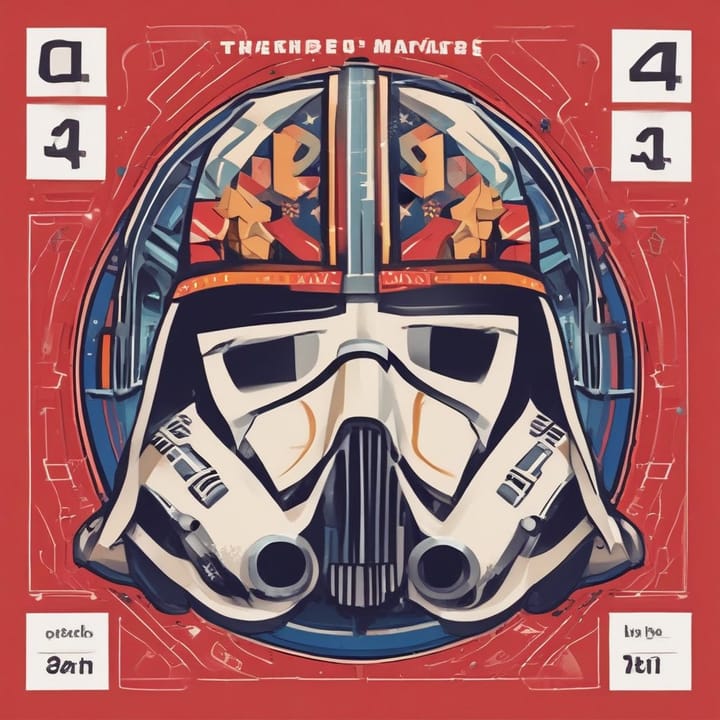Exploring the Intersection of Blockchain Technology and Religion
A Spiritual Revolution in Decentralized Systems

Blockchain technology, known for its revolutionary impact on industries from finance to supply chain management, is increasingly being explored in the context of religion. This article delves into how blockchain's decentralized nature intersects with religious tenets and practices.
The Decentralization of Religion: Blockchain Temples and Beyond
In our exploration of the intersection between blockchain technology and religion, we have thus far discussed the potential for this innovative tech to revolutionize spiritual expression (Chapter 1). We delved into the decentralized nature of blockchain systems and how they can provide new opportunities for individuals to connect on a deeper level (Chapter 2). Now, let's examine some practical applications of this concept in the context of religious institutions.
Decentralized Religious Spaces: Blockchain Temples
As traditional religious institutions grapple with changing societal expectations and dwindling membership numbers, new models for spiritual expression are emerging from the blockchain space. One innovative approach is the concept of 'Blockchain Temples'. These virtual spaces leverage the transparency and immutability inherent in blockchain technology to create new avenues for communal worship and connection.
A Blockchain Temple functions as a decentralized digital sanctuary, where members can gather and engage in religious practices together. Transactions on the blockchain serve as evidence of participation and commitment. These temples could be based on any belief system or spiritual tradition, creating an open and inclusive environment for seekers from all walks of life.
Decentralized Governance: Power to the People
The decentralized nature of Blockchain Temples extends beyond their technological infrastructure; they also embody a new model for governance. Traditional religious institutions are often hierarchical, with power concentrated at the top. In contrast, blockchain-based temples offer a more democratic approach to decision making.
Through smart contracts and decentralized autonomous organizations (DAOs), members can participate in the development of their temple's mission, values, and practices. This democratization of religious institutions not only encourages greater inclusivity but also fosters a sense of ownership and investment among its members.
Beyond Temples: Blockchain and Religious Innovation
The potential applications of blockchain technology to religion extend far beyond the concept of Blockchain Temples. Here are just a few possibilities:
- Decentralized Faith Communities: Instead of being bound by geographical location, individuals can connect with like-minded individuals from around the world through blockchain-based communities. These digital spaces could offer opportunities for shared spiritual practices, educational resources, and collaborative problem solving.
- Blockchain Philanthropy: Religious organizations often rely on donations to fund their charitable endeavors. Blockchain can provide a more transparent and efficient means for collecting and distributing funds, ensuring that contributions are used ethically and effectively.
- Decentralized Spiritual Counseling: Traditional spiritual counseling relies heavily on the human connection between counselor and client. However, blockchain technology could enable the creation of decentralized AI counselors, offering personalized guidance based on an individual's beliefs and needs. These systems could be trained using a combination of user input and data from existing religious texts and teachings.
As we continue to explore the intersection of blockchain technology and religion, it becomes increasingly clear that this innovative tech has the power to disrupt traditional religious institutions in profound ways. By enabling more decentralized forms of spiritual expression, blockchain can pave the way for a new era of collaborative, inclusive, and transformative religious experiences.
Exploring Interfaith Collaboration Through Blockchain
In our exploration of the intersection of blockchain technology and religion, we have seen how this decentralized system can provide a shared digital space for various faiths to come together and pursue common goals. In this chapter, we delve deeper into the topic of interfaith collaboration through blockchain, investigating real-world examples that demonstrate the power of removing barriers and fostering understanding between different religious communities.
Interfaith collaboration is a crucial aspect of building a more inclusive and peaceful world. However, historical tensions and misunderstandings have often made it challenging for individuals from different faiths to connect and work together. Blockchain technology can potentially bridge these divides by offering a decentralized platform where individuals can interact without the need for intermediaries or geographical boundaries.
One of the earliest and most successful examples of interfaith collaboration through blockchain is the Interfaith Blockchain Coalition (IBC). Founded in 2018, IBC brings together representatives from various religions to explore how blockchain can be used to address common challenges and promote understanding among different faiths. The coalition has worked on various projects, including a digital pilgrimage platform that allows followers of different religions to virtually visit holy sites and learn about each other's traditions.
Another example is the AidCoin project, which aims to provide humanitarian aid through blockchain technology. This initiative has brought together individuals from diverse religious backgrounds to work towards a common goal of helping those in need. By using blockchain, donations can be tracked transparently and efficiently, ensuring that they reach their intended recipients.
Perhaps one of the most inspiring examples of interfaith collaboration through blockchain is the Interchains Foundation's Multichain Temple project. This initiative involves building a temple on the Ethereum blockchain where individuals from different faiths can come together and create their unique spaces for worship. Each religious community is given its smart contract to manage and maintain its specific area, fostering collaboration and mutual respect.
The potential applications of blockchain technology in interfaith collaboration are vast and varied. From facilitating the exchange of religious texts and artifacts to managing charitable donations and promoting interfaith education, this decentralized system offers a unique opportunity for individuals from different faiths to connect and work together towards common goals. By providing a shared digital space where individuals can interact freely and without prejudice, blockchain technology has the potential to foster deeper understanding and cooperation between religious communities.
As we continue our exploration of the intersection of blockchain technology and religion, it is essential to remember that this decentralized system represents more than just a technological innovation. It offers an opportunity for individuals to come together and transcend the boundaries that have historically kept them apart. By embracing the potential of blockchain technology in interfaith collaboration, we can work towards building a more inclusive, peaceful, and connected world.
Blockchain Ethics: A New Moral Framework for the Digital Age
As we delve deeper into the intersection of blockchain technology and religion, it is crucial to examine the ethical implications of this technological revolution within spiritual contexts. The decentralized and transparent nature of blockchain can lead to a new moral framework, one that aligns with the core values of many religious traditions.
Decentralization and Moral Decision-Making
The decentralized nature of blockchain offers a unique opportunity for moral decision-making in the digital age. In traditional systems, intermediaries often hold the power to approve or deny transactions based on their own set of ethical guidelines. However, with blockchain, each participant is part of the network and has access to the same data, leading to a more collective and democratic approach to moral decision-making.
For instance, consider charitable giving as an application. In the past, intermediaries like banks or nonprofit organizations have controlled the flow of funds. However, with blockchain, donors can directly transfer funds to recipients, bypassing intermediaries and reducing transaction costs. This not only empowers individuals but also encourages greater transparency and accountability in charitable giving.
Transparency and Accountability in Religious Practices
Religious practices that rely on trust, such as tithes or offerings, can greatly benefit from the transparency offered by blockchain technology. For instance, a religious organization could create a smart contract on the blockchain to manage donations. Each donation would be recorded publicly and transparently, allowing members to verify where their funds are being used. This level of transparency not only increases accountability but also builds trust within the community.
Blockchain Ethics and Religious Traditions
The ethical framework provided by blockchain aligns with many religious traditions that emphasize decentralization, transparency, and accountability. For example, Buddhism advocates for the elimination of intermediaries between individuals and their actions, a concept reflected in the decentralized nature of blockchain. Similarly, Christianity's emphasis on honesty, fairness, and compassion resonate with the principles of transparency and accountability underpinned by blockchain technology.
Moreover, blockchain can help address issues like digital identity and data ownership, which are crucial in many religious traditions. For instance, Hinduism places great importance on individual identity and personal growth, which can be reflected through self-sovereign digital identities on the blockchain.
Blockchain Ethics as a Spiritual Revolution
In conclusion, the intersection of blockchain technology and ethics represents a new moral framework for the digital age that resonates with many religious traditions. The decentralized and transparent nature of blockchain offers unique opportunities in areas like charitable giving, moral decision-making, and identity management. As this technological revolution continues to unfold, it presents an exciting opportunity for spiritual growth and renewal within our increasingly digital world.


